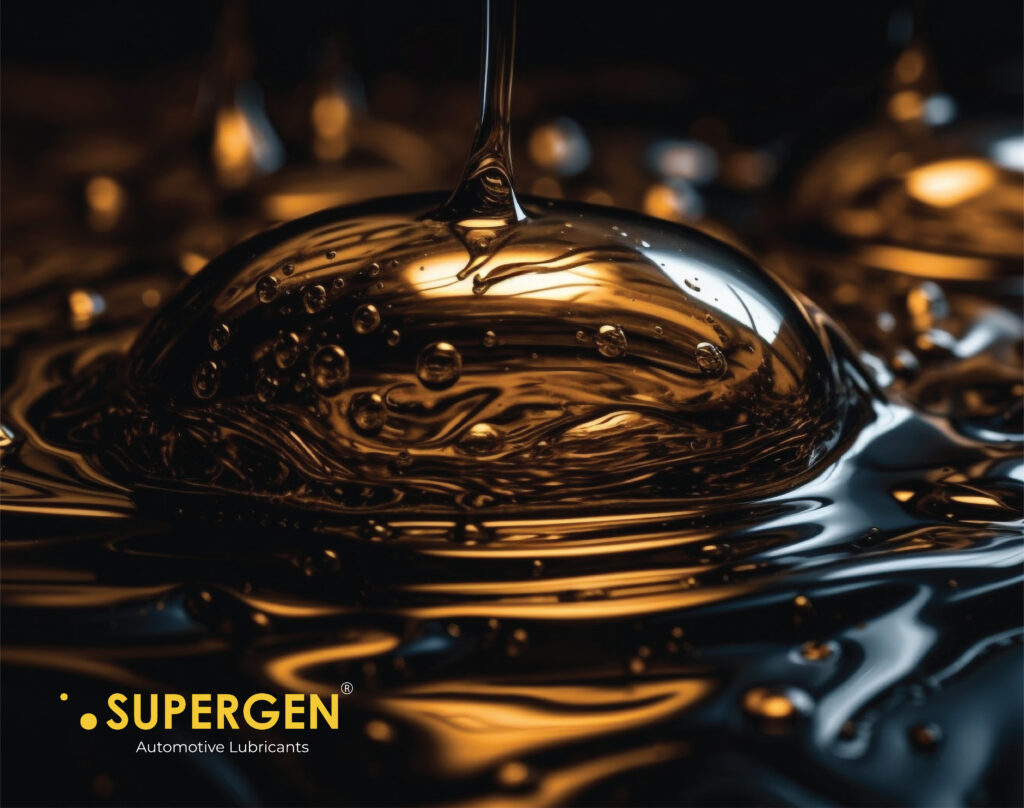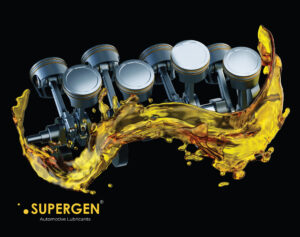In the automotive world, engine oil is often perceived as a routine maintenance item—a necessity that keeps vehicles running smoothly. While regular oil changes are crucial, the type of engine oil used can significantly influence the overall performance and longevity of an engine.
Premium engine oils, often marketed as high-performance lubricants, come with a slightly higher price tag than conventional oils. However, their real-world cost savings far outweigh the initial investment.
Let’s delve deep into how premium engine oils lead to measurable financial benefits in terms of fuel efficiency, reduced wear and tear, longer oil change intervals, and overall vehicle longevity.
1. Understanding Premium Engine Oils
Premium engine oils are advanced formulations that offer superior protection and performance compared to conventional oils. They are typically made from high-quality base oils and enriched with advanced additives designed to enhance engine efficiency, reduce friction, and minimize deposits.
Key Features of Premium Engine Oils:
- Synthetic Base Oils: Most premium oils are fully synthetic, meaning they are chemically engineered to provide optimal lubrication under extreme conditions.
- Advanced Additive Packages: These include detergents, dispersants, anti-wear agents, and antioxidants that keep the engine clean and protected.
- Higher Viscosity Stability: Premium oils maintain their viscosity across a wider temperature range, ensuring consistent performance in both hot and cold environments.
2. Improved Fuel Efficiency
One of the most immediate and noticeable benefits of using premium engine oil is improved fuel efficiency. Premium oils reduce internal engine friction, allowing the engine to operate more smoothly and with less resistance.
How It Works:
- Lower Friction: Premium oils contain friction modifiers that reduce metal-to-metal contact, which translates into less energy lost as heat.
- Better Flow at Cold Start: Synthetic oils flow more readily at low temperatures, reducing the effort required by the engine during cold starts.
Real-World Savings:
According to studies, switching from conventional to premium synthetic oil can improve fuel efficiency by 1-3%. While this might seem minor, it adds up over time:
- If you drive 15,000 miles annually with an average fuel economy of 25 MPG, saving just 2% on fuel translates to about 12 gallons of fuel saved per year. At $4 per gallon, that’s $48 in savings annually.
- Over a five-year period, you could save $240, which can offset the higher upfront cost of premium oil.
3. Extended Oil Change Intervals
Premium engine oils are engineered to last longer than conventional oils. While traditional oils may require changes every 3,000 to 5,000 miles, many premium synthetic oils can last up to 10,000 miles or more between changes.
Why Premium Oils Last Longer:
- Enhanced Thermal Stability: Premium oils resist breakdown at high temperatures better than conventional oils.
- Superior Oxidation Resistance: Advanced antioxidants prevent the oil from degrading due to exposure to oxygen.
- Better Contaminant Control: High-quality dispersants and detergents keep contaminants in suspension, preventing sludge and deposit formation.
Cost Comparison:
Let’s compare the costs over a 60,000-mile period:
- Using conventional oil with a 5,000-mile interval requires 12 oil changes.
- Using premium synthetic oil with a 10,000-mile interval requires 6 oil changes.
Assuming a conventional oil change costs $40 and a synthetic oil change costs $70:
- Conventional Oil: 12 changes x $40 = $480
- Premium Oil: 6 changes x $70 = $420
Over 60,000 miles, premium oil saves $60 in oil change costs alone—and that doesn’t include the time saved from fewer trips to the service center.
4. Reduced Engine Wear and Maintenance Costs
Premium engine oils offer superior protection against wear and tear, which can significantly reduce maintenance costs over the life of a vehicle.
Engine wear typically occurs due to friction, high temperatures, and the presence of contaminants. Premium oils address all these factors more effectively than conventional oils.
Key Benefits:
- Anti-Wear Agents: Premium oils contain higher concentrations of zinc and phosphorus-based anti-wear additives, which form a protective layer on engine components.
- Deposit Control: Advanced detergents prevent the formation of carbon deposits on critical engine parts, ensuring optimal performance.
- Cooler Operation: By reducing friction and improving heat dissipation, premium oils help engines run cooler, further minimizing wear.
Real-World Impact:
A well-lubricated engine experiences less wear, meaning fewer costly repairs. Major engine repairs, such as replacing a worn-out camshaft or bearings, can cost thousands of dollars.
By reducing wear, premium oil helps avoid these expenses, potentially saving thousands over the life of a vehicle.
5. Enhanced Engine Longevity
Premium engine oils contribute to longer engine life by maintaining optimal lubrication and cleanliness. A clean, well-lubricated engine operates more efficiently and with less stress on its components.
Supporting Evidence:
- Studies have shown that engines running on premium synthetic oils have fewer deposits and exhibit less wear compared to those using conventional oils.
- Fleet operators who switched to premium oils reported extended engine life an reduced downtime, leading to significant cost savings.
Long-Term Savings:
By extending the life of an engine, premium oils can delay or even eliminate the need for costly engine rebuilds or replacements.
For example, if a conventional oil user needs an engine rebuild at 150,000 miles, but a premium oil user can delay that until 200,000 miles or more, the savings could be substantial—potentially $3,000 to $5,000.
6. Better Environmental Impact
While not directly related to personal financial savings, the environmental benefits of premium engine oils can lead to indirect cost savings for society as a whole.
Environmental Benefits:
- Reduced Oil Consumption: Fewer oil changes mean less waste oil generated.
- Lower Emissions: Improved combustion efficiency and reduced engine deposits lead to lower exhaust emissions.
Governments may offer incentives for using environmentally friendly products, such as reduced registration fees or tax breaks for low-emission vehicles. While these incentives are currently more common in Europe, they may become more widespread in other regions.
7. Special Considerations for Commercial Fleets
For commercial fleet operators, the cost savings from using premium engine oils can be even more pronounced.
With large numbers of vehicles covering high mileage, the benefits of improved fuel efficiency, extended oil change intervals, and reduced maintenance costs are multiplied.
Example:
A delivery fleet with 50 vehicles, each covering 25,000 miles annually, could see significant savings:
- Fuel Savings: Assuming a 2% improvement in fuel efficiency and an average fuel cost of $4 per gallon, the fleet could save $20,000 annually.
- Oil Change Savings: Switching from a 5,000-mile to a 10,000-mile oil change interval could reduce oil change costs by 50%.
Let’s Conclude
While premium engine oils come with a higher upfront cost, the real-world savings they offer far outweigh the initial expense. From improved fuel efficiency and extended oil change intervals to reduced engine wear and enhanced longevity, premium oils provide measurable financial benefits.
Whether you’re an individual car owner or a commercial fleet operator, investing in high-quality engine oil can lead to significant cost savings over time.
By reducing fuel consumption, minimizing maintenance costs, and extending engine life, premium engine oils not only save money but also contribute to a more sustainable and efficient automotive ecosystem.
When considering the total cost of ownership, the choice to use premium engine oil is a smart investment in both your vehicle and your wallet.
FAQ’s
1. How often should I change premium engine oil?
Premium engine oils typically last between 7,500 to 10,000 miles, depending on the manufacturer’s recommendations and driving conditions.
2. Are premium engine oils worth the extra cost?
Yes, premium engine oils provide better protection, improve fuel efficiency, and reduce maintenance costs, resulting in long-term savings.
3. Can I switch from conventional oil to premium synthetic oil?
Yes, most vehicles can switch to premium synthetic oil. Check your owner’s manual or consult with a mechanic for compatibility.
4. Do premium oils improve engine performance?
Yes, premium oils reduce friction, keep the engine cleaner, and improve overall efficiency, which enhances performance.
5. Are there environmental benefits to using premium engine oils?
Yes, premium engine oils reduce waste oil generation and lower vehicle emissions, contributing to a cleaner environment.








